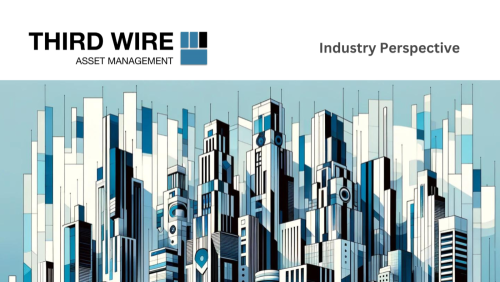Originally published on LinkedIn on July 8, 2024
Institutional Investing for Individuals: A Recipe for Disaster (And Why You Should Avoid It)
Ok, I just couldn’t read another article or watch another video about how “your clients are more like institutional investors than you think” without speaking up on it. Never mind that most of these pundits are clearly motivated to push this dangerous narrative in order to sell whatever brand of private equity or private credit they’re pushing this month, but let’s get real: your clients are fundamentally different from institutions in a number of critical ways.
I mean, seriously, what the hell? Are we really supposed to buy into this crap? It’s like these guys have never met an actual human being with a portfolio. Your average Joe or Jane Millionaire isn’t sitting on a century-old endowment or a public pension with an infinite time horizon. They’re worried about retiring comfortably, putting his kids through college, and maybe buying that beach house they’ve been eyeing for years.
Your average Joe or Jane Millionaire isn’t sitting on a century-old endowment or a public pension with an infinite time horizon. They’re worried about retiring comfortably, putting his kids through college, and maybe buying that beach house they’ve been eyeing for years.
Let’s break it down, shall we?
- Liquidity Needs: Last time I checked, Yale doesn’t need to liquidate a chunk of its endowment because little Timmy needs braces. Your clients? Different story.
- Time Horizon: Endowments think in terms of centuries. Your clients? They’re thinking about the next 20-30 years, tops. And more likely, most of them are focused on the next 5-10.
- Regulatory Environment: Institutions play by a different rulebook. They’ve got teams of lawyers to navigate the regulatory maze. Your clients? They’ve got you, and maybe their cousin who took a business class in college.
- Access to Opportunities: Sure, some of your ultra-high net worth clients might get a sniff at the good stuff. But for most? They’re not exactly on speed dial for the next hot fund manager.
- Risk Tolerance: An endowment or pension can typically weather a storm. Your clients? One bad year and they’re calling you in a panic, wondering if they’ll need to downsize their lifestyle.
Here’s the Kicker
Here’s the kicker: the firms pushing this narrative? They’re not stupid. They know this stuff. But their agenda is at best misguided, and at worst, well, let’s just say I wouldn’t want to be on the business end of that class action lawsuit when it inevitably happens.
Here’s the kicker: the firms pushing this narrative? They’re not stupid. They know this stuff. But their agenda is at best misguided, and at worst, well, let’s just say I wouldn’t want to be on the business end of that class action lawsuit when it inevitably happens.
For some reason, they’ve decided that your job as an advisor is to replicate institutional strategies instead of creating tailored, appropriate investment plans that align with your clients’ unique needs, time horizons, and risk tolerances. You know, goals-based planning. Sometimes, that might include alternative investments or strategies inspired by institutional approaches. But it’s not a given.
Look, I get it. Alternatives can be a valuable part of a diversified portfolio. But let’s not kid ourselves—successfully investing in alternatives requires resources, expertise, and a network, i.e., knowing the right people and getting access to top-tier managers. Everyone else? Most are getting suckered into mediocre products because they don’t know any better.
So the next time someone tries to sell you on the “institutional approach” for your clients, do us all a favor: laugh them out of your office. Remind them that our job as advisors is to look out for our clients’ best interests, not to make some wholesaler’s quota. We’ll stick to what works for real people with real goals and real needs, thank you. Leave the institutional envy to the academics and the asset gatherers.
They need to be reminded that you’re not managing Yale’s money; you’re managing the life savings of people who trust you and whose financial needs you prioritize above your own.
They need to be reminded that you’re not managing Yale’s money; you’re managing the life savings of people who trust you and whose financial needs you prioritize above your own.
Best,
Dan
Disclaimer:
This article is for informational and educational purposes only and should not be construed as providing tax or legal advice. It does not take into account the specific investment objectives, financial situation, or particular needs of any reader. Readers should consult with their own tax, legal, and financial advisors to determine the appropriateness of any investment strategy or approach mentioned herein. Investing involves risk, including the possible loss of principal.

